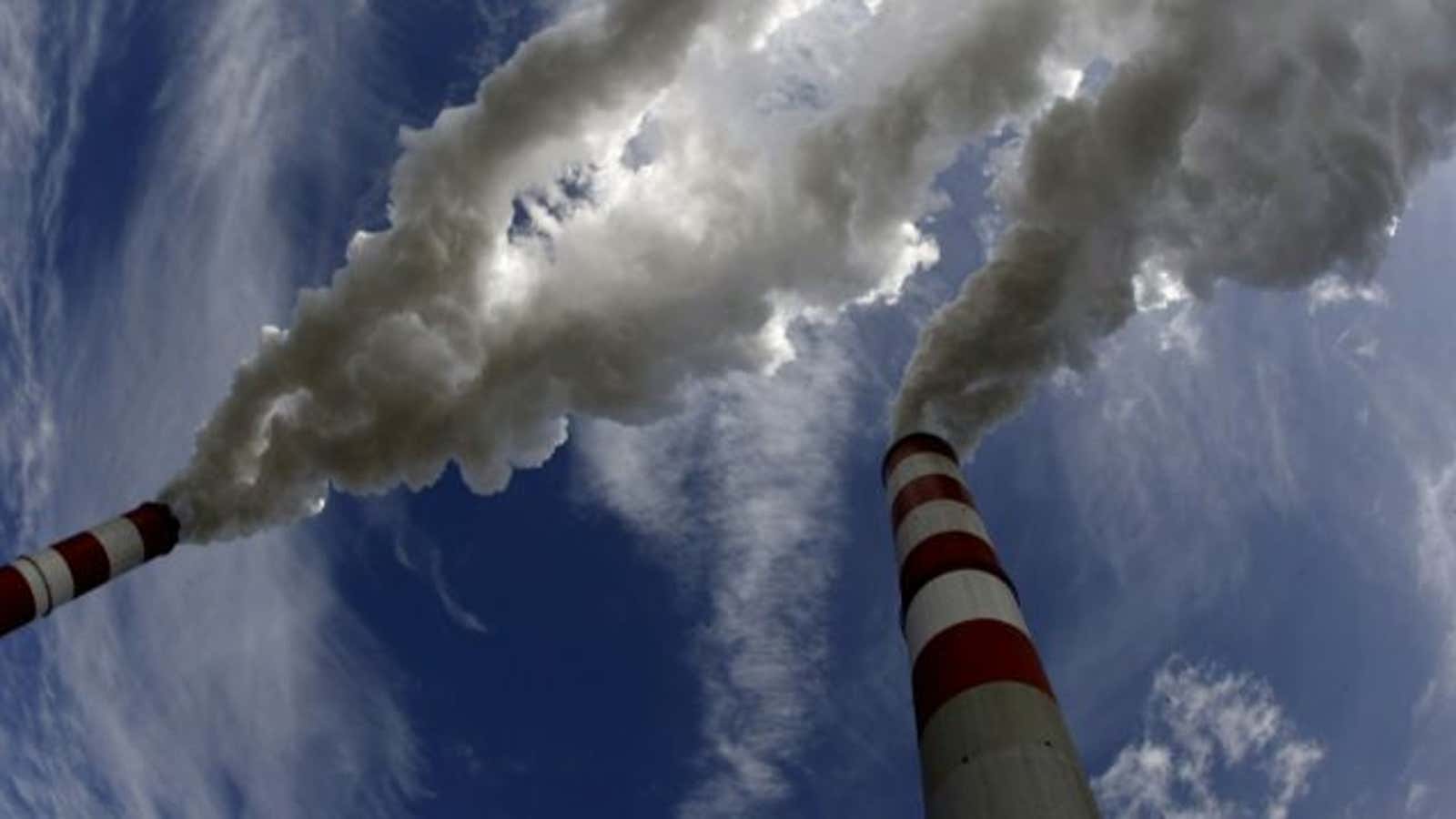As the world adapts to climate change, companies around the globe are building a carbon price into their investment models, accounting for the likelihood that carbon will be a big part of their budget one day.
The trend is growing rapidly. In fact, the Carbon Disclosure Project (CDP), a non-profit system for companies to disclose carbon emissions, says that from 2012 to 2016, the number of companies planning to pay for carbon has more than tripled.
In 2016, 517—or about 19% of companies disclosing their carbon emissions to CDP—have set an internal price on carbon, according to the latest survey (pdf).
The data is based on responses from 1,089 major companies, representing 12% of global emissions, that disclose carbon-related data to CDP on behalf of investors and large purchasing organizations. Of those, 85% of have already set targets for emissions reduction and 62 companies report decreasing emissions while increasing revenue. The price for carbon ranged as low as a few cents to as high as $150 per metric ton, although averages were generally between $5 and $25 in US, UK, Canada, and other regions.
“We are seeing internal carbon pricing moving from theory to practice, with increasing numbers of companies using it as a tool to manage the business risks posed by climate change and prepare for a carbon-constrained future,” wrote Nicolette Bartlett, a director at CDP, by email.
This matters because according to the numbers crunched at last year’s COP21 international climate convention, half the world’s target emission reductions will have to come through market mechanisms like carbon pricing.
Companies serve as bellwethers for expectations on climate change action because they must disclose material risks to shareholders, and make investments in assets lasting decades. And their investors have pushed for more transparency, which has forced companies to make climate-related financial disclosures a part of their accounting. The practice is bound to become even more mainstream: taskforce for the Financial Stability Board, the international body monitoring the global financial system, recommended (pdf) that carbon accounting be adopted in financial filings as part of standard financial reporting this December.
